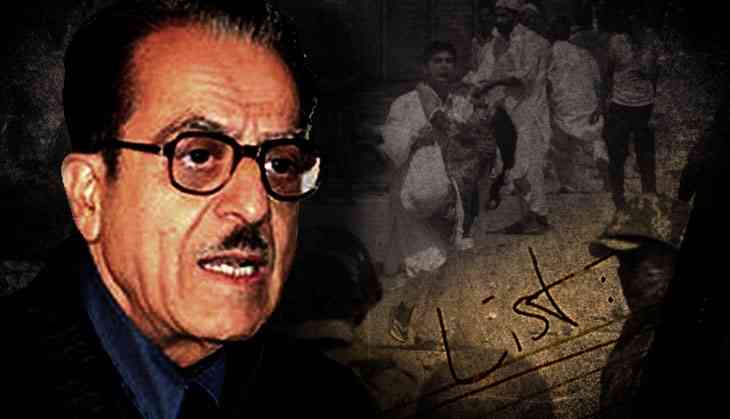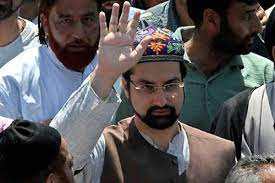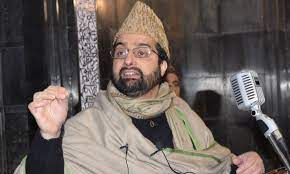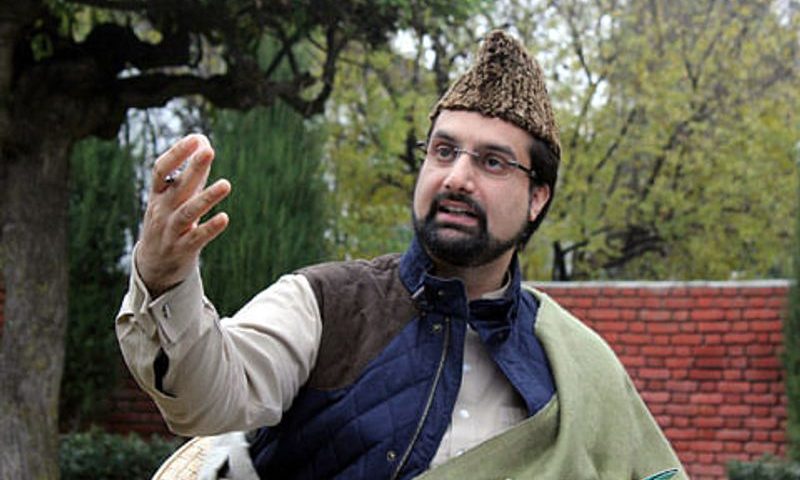At a time when the government in Delhi is caught up in the nightmare of its choice in the state of Jammu and Kashmir, it is no surprise that every Kashmiri – young or old – is grappling with questions about their future. Veteran Congress leader from Kashmir Saifuddin Soz is no exception.
He sits before me like a man possessed. “General Musharraf had perhaps correctly told his fellow Generals that Kashmiris do not want to join Pakistan. Given a choice, he said, the Kashmiris would vote for Independence which was not possible. This is largely true today also. But all stakeholders must try to find a possible solution,” he says with great intensity.
Having laid out the two constants defining the present situation in Kashmir, Soz takes out a folded piece of paper he is carrying in his jacket pocket. He carefully unfolds it, straightening it out by pressing it against the flat table top and says, “See, these are the five things I want to say to you and through you to people in India who think about Kashmir.”
Reading the list from across the table, I see that the first point says, “Do not go to extremes.”
Soz removes his distance glasses and put on his reading glasses. Looking at the piece of paper, he says, “No one who wants to address the Kashmir problem should take up an extreme position. I was distressed when Sartaj Aziz said in Pakistan that as long as Modi is the Prime Minister there could be no prospect of peace. Similarly I don’t support those Kashmiri separatist leaders who say that there can be no talk with the Modi government. On what basis do they claim moral superiority? So I say do not take extreme positions which lead us nowhere.” He takes off his reading glasses and puts on his distance ones to elaborate his point.
The second point on the piece of paper reads: “Modi is a factor”.
Soz once again switches glasses and says, “We must acknowledge that Modi is the elected Prime Minister of India and he is going nowhere for the next two years. What happens if he is re-elected for another five years? Are we saying that Kashmiris should continue to suffer because talks with Modi would be pointless? In politics, you have to take all factors into account and then try to move forward. So, Modi is a reality. We have to accept it and then try to find a solution to the Kashmir problem.”
The third point reads: “Awareness in India.”
Soz feels that the media is not doing enough to create awareness about the suffering of the Kashmiri people in the rest of the country. More journalists ought to go to Kashmir and talk to ordinary Kashmiris and report on their woes, he feels.
There are misconceptions and misperceptions about Kashmir and Kashmiris, he claims. “Kashmiris are not fundamentalists. We can never be. It is not a part of our culture or way of life. You should note how recently even the Hizbul Mujahidin had to disown the talk about establishing Sharia and fighting for Islam by a militant, Zakir Musa. They had to disown that agenda because there is no popular support for it,” he argues.
The fourth point on the list reads: “Middle path.”
Fiddling around with changing his glasses once again, Soz says, “Those who say that we should go back to the state having all the residual power except defence, foreign affairs, communications and currency don’t know what they are talking about. Don’t we need the Supreme Court? Don’t we need the Election Commission? So the middle ground could be the Nehru-Sheikh Abdullah agreement or the Delhi Agreement of 1952. Sheikh Saheb had said this is the Azaadi we want. We should make that the basis of a solution woven into the Musharraf formula.”
Among other things, the Delhi Agreement allowed that “persons domiciled in Jammu and Kashmir shall be regarded as citizens of India, but the State Legislature was empowered to make laws for conferring special rights and privileges on the State’s subjects”; the President of India would command the same respect as in the rest of India; the state would have its own flag in addition to the Union’s flag but it will not be rival to the tricolor; the Governor or the sadar-e-riyasat would be elected by the State Legislature and not appointed by the President of India; the Supreme Court of India would have appellate jurisdiction; and any internal emergency would not be declared without the request or the concurrence of the State government.
Soz wants this interwoven with the four-point formula of the erstwhile Pakistan dictator, General Pervez Mushrraf. He believes that India and Pakistan would have to revive the Musharraf formula of gradual demilitarization, greater autonomy on both sides of Kashmir, ease of movement for Kashmiris across the Line of Control, and the development of a cooperative and consultative mechanism for solving problems of social and economic development of the region.
He says that if the people of Jammu or Ladakh do not want this, then the government should agree to allow them to opt out of it. India will not become weaker because of this, he argues.
“If you have to talk to the Hurriyat leaders, heavens will not fall. Let them say what they want. Talking to them does not mean giving away Kashmir. It is quite possible the people of Kashmir may not agree with what they want. But you have to unlock this situation and talks are a way of doing that. The Union government must initiate talks and Hurriyat should be the first of the stakeholders with whom talks should be held. All manner of people in the state should have a say and all should be free to express their feelings,” he argues.
Soz feels that none of this will be possible unless political leaders sink their differences to work together towards this framework.
“My final point, therefore, is that the Congress party must lead the national Opposition in working together with the Union of India to find a lasting solution to the Kashmir problem. The national opposition should be part of the solution rather than part of the problem,” he says hopefully.
With a finality he changes his glasses once again, carefully folds the piece paper lying in front of him and puts its back in his pocket and says, “This is my five-point suggestion for creating the right context for bringing peace to Kashmir.”






